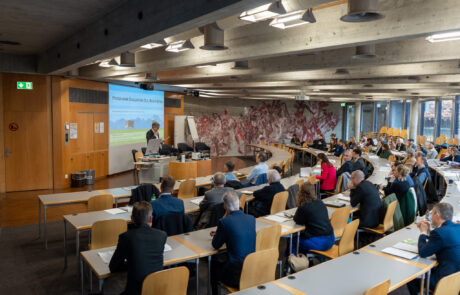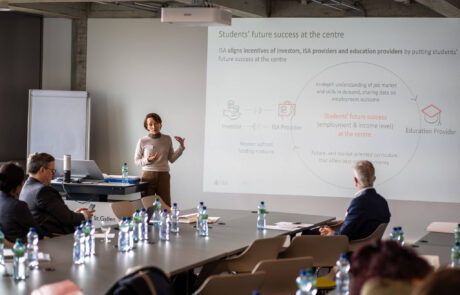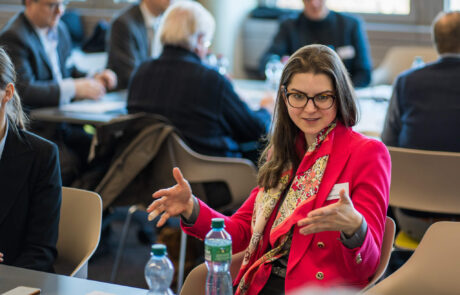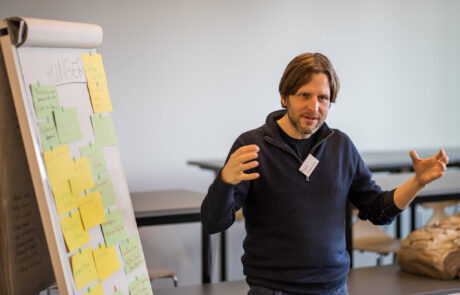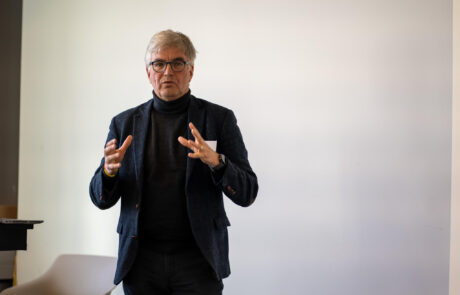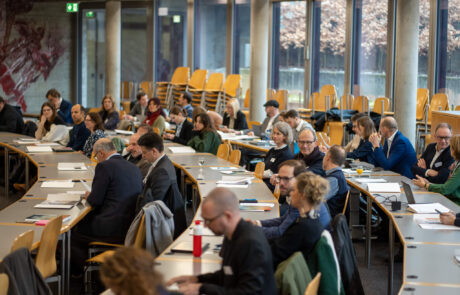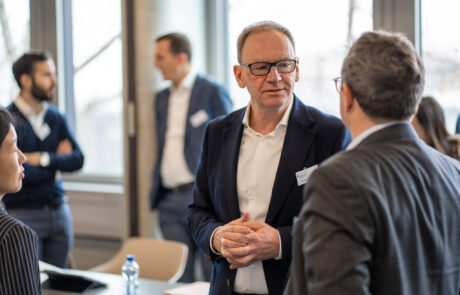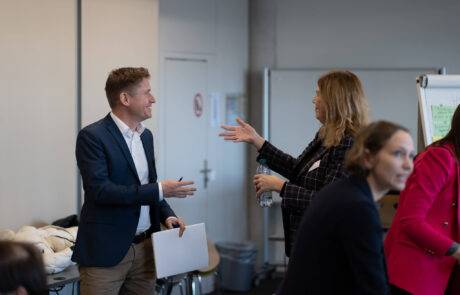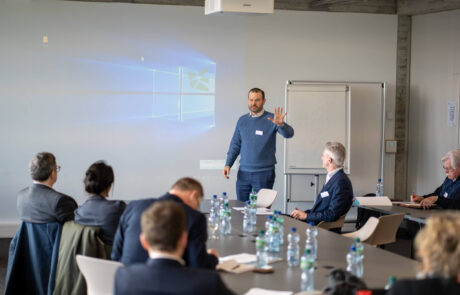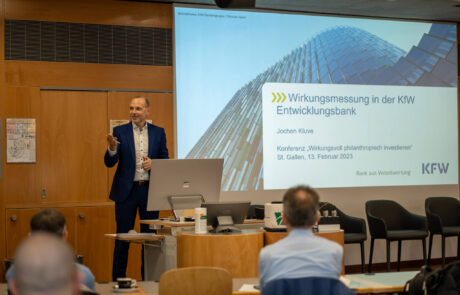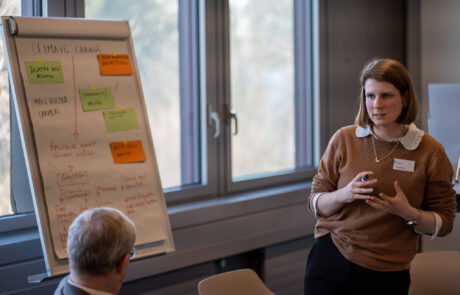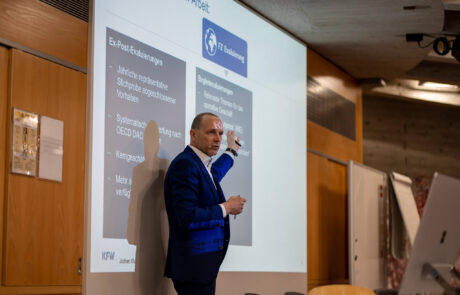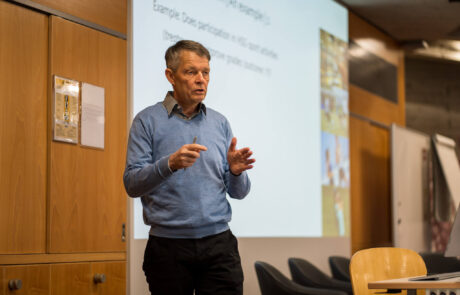Foundations, public institutions, socially oriented companies, impact investors and sustainable investment funds are making increasingly important contributions to the international fight against poverty, hunger and the consequences of climate change through their philanthropic engagements. While combining efforts from different organizations may yield improved outcomes, such cooperation is difficult to achieve.
Our 2023 St. Gallen Conference on Effective Philanthropy with the Center for Philanthropy (CfP) at the University of St. Gallen (HSG) brought together actors from different public and private sectors to discuss ways of working together to achieve maximum social impact. In addition to the emphasis on collaboration and cross-sector partnerships, evidence-based decision making and impact evaluations were also an important part of the conversation. Speakers and participants alike stressed the importance of measuring the impacts of programs and making data-driven decisions in order to maximize social impact.
Following two introductory plenary presentations covering the importance of impact evaluation methods by HSG Professor Michael Lechner and Professor Jochen Kluve (Humboldt University Berlin and KfW Entwicklungsbank), participants were invited to join two workshop-sessions . These workshops saw attendees share their own experience in project work and impact measurement and provided a key learning opportunity by spawning a fruitful exchange of ideas. Topics ranged from experiences in reaching vulnerable children, measuring climate vulnerability, combatting child marriage to mobilizing finance from different partners and measuring impacts of programs.
In the afternoon, participants were participating in two hands-on designed to explore what an ideal-typical project with a sustainable impact could look like in Ethiopia and Pakistan, focusing on poverty, hunger and climate change. The participants were tasked with imagining what such a project would entail if there were unlimited funds and no time restrictions. They considered how priorities could be ordered and what hierarchy of goals could be derived from this. The workshop aimed to encourage participants to think big and come up with innovative solutions to the most pressing social issues facing the countries. Through a collaborative and creative process, the workshop generated a variety of exciting ideas that could help to inspire future philanthropic projects in the region.
The conference concluded with a panel on climate change and how the philanthropic sector addresses the pressing need for effective climate adaptation strategies. Although the majority of the panelists were from the philanthropic sector, they emphasized the need for collaboration across sectors to tackle the challenge of climate change. The panelists highlighted the critical role that philanthropy can play – especially since civil society actors are able to act more quickly than the public sector. Additionally, they also underlined the importance of engaging local communities and other stakeholders in the design and implementation of programs. While stressing the key role of strong public policy, the panel participants also focused on the fact that effective philanthropy requires stronger cooperation between philanthropically active players.
Overall, the St. Gallen Conference was a powerful reminder of the importance of collaboration, evidence-based decision making, and impact evaluation in the world of philanthropy and social investment. To facilitate further dialogue, we aim to continue conversations from the conference in the coming months. We look forward to seeing participants and interested parties at further conferences in Mannheim and St. Gallen.

